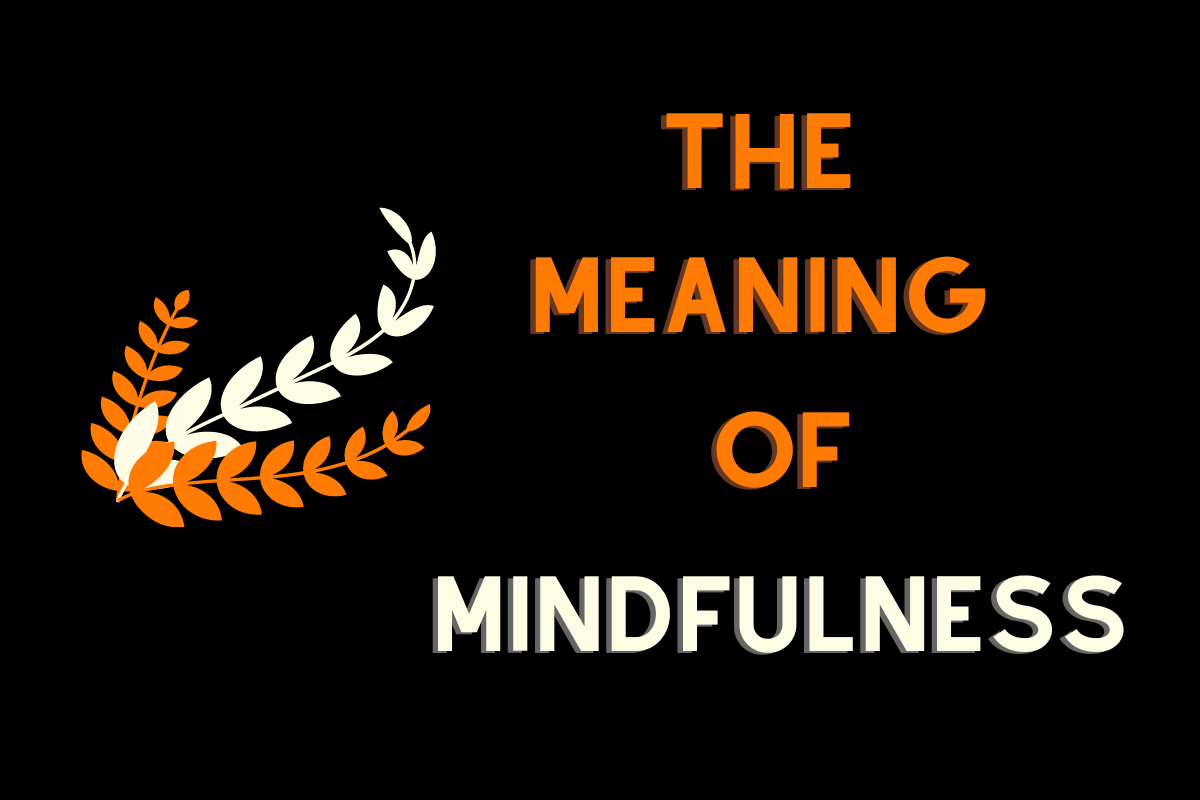In today’s fast-paced world, finding moments of tranquility amidst the hustle and bustle can seem like a distant dream. Enter mindfulness, a practice that invites you to slow down, embrace the present moment, and discover a newfound sense of clarity and calm.
If the “now” is truly all we have, then the definition of “mindfulness” is that it is a method to make sure you experience every moment with your full attention, which is how to bring meaning to your life.
What is mindfulness?
At its core, mindfulness is the art of being fully present. It’s about engaging with each moment in a non-judgmental and accepting manner. Imagine taking a pause from the ceaseless whirlwind of thoughts, worries, and distractions to savor the beauty of now. Mindfulness allows you to do just that – to step out of the autopilot mode and experience life in its raw, unfiltered glory.
Mindfulness involves observing your thoughts, feelings, bodily sensations, and the environment without getting caught up in them. It encourages acknowledging whatever arises without labeling it as good or bad. The goal of mindfulness is to develop a clear and non-judgmental awareness of your experiences, which can lead to greater insight, emotional regulation, and overall well-being.
While mindfulness can be cultivated through meditation practices like mindfulness meditation, it can also be applied to everyday activities.
In an era where information overload and stressors are the norm, the relevance of mindfulness and maintaining a sense of calmness shines even brighter in this modern world. Many of the concepts behind the practice actually make-up much of the understanding behind the heart and mind-mastering concepts inherent in Zen Buddhism and Stoicism.
Mindfulness is a method of which to be present as each moment comes or to draw upon when you feel your emotions are getting the best of you. The benefits to this age-old practice are multifold with the following just listing a few ways being mindful will alter your life.
But the truth is, words are not enough to truly define mindfulness and the value that being mindful will bring to you. But at its very essence being mindful allows us to place value on every moment we are alive.
The transformative power of mindfulness: Five ways practicing mindfulness can improve your life
1. Stress reduction and emotional regulation
Mindfulness equips you with the tools to navigate life’s challenges with grace, which is the result of emotional regulation and stress reduction. By observing your thoughts and emotions without getting entangled in them, you can manage stress more effectively and respond to situations with greater clarity.
2. Enhanced focus and productivity
Have you ever found yourself halfway through a task, only to realize your mind has wandered elsewhere? Mindfulness sharpens your focus, enabling you to concentrate on the task at hand and maximize your productivity.
3. Improved mental health
Studies show that mindfulness can alleviate symptoms of anxiety, depression, and other mental health conditions. By nurturing self-awareness and self-compassion, you can create a more resilient and balanced mental landscape.
4. Deeper relationships
Mindfulness extends beyond solitary practice; it enriches your interactions with others. By truly listening and being present in conversations, you can foster deeper connections and more meaningful relationships.
5. Physical well-being
The mind-body connection is undeniable, and mindfulness underscores this relationship. Regular practice has been linked to lowered blood pressure, better sleep, and a strengthened immune system.
How to practice mindfulness in daily life: Easy and practical tips
Incorporating mindfulness into your daily routine need not be daunting, it just needs devoting full attention to the passing of time and how you are doing it. But there are also a number of methods to help you make a concerted effort to learn how to adopt this state whenever you choose to.
Mindful breathing
Take a few moments each day to focus on your breath. Breathe in slowly, feeling the air fill your lungs, and then exhale gently. This exercise anchors you to the present moment and promotes relaxation.
Mindful eating
Transform mealtime into a sensory experience. Engage your senses as you eat, paying attention to flavors, textures, and aromas. This practice encourages mindful consumption and fosters gratitude for nourishment.
Focus on the five senses
Engaging the sense of smell, sound, sight, taste and touch in any order and at any time, is a simple way to bring presence to your experience in any environment. Narrow your focus on to one color in sight for example and pay attention to how what you see before you can instantly change when we hone in our focus on something.
Body scan
Start from either your toes or the top of your head and actively pay attention to feeling each body part distinctly from another. Another way to use your body to catch onto the feeling of presence is to widen your perspective of where you are in the world at the moment and cone out to as far as the galaxies.
Nature walks
Take a leisurely stroll outdoors and immerse yourself in nature. Listen to the rustling leaves, feel the ground beneath your feet, and observe the world around you. Nature offers a perfect backdrop for practicing mindfulness by activating the senses and drawing attention to your placement in the universe.
Daily check-ins
Set aside time to check in with yourself. How are you feeling physically and emotionally? This practice encourages self-awareness and helps you stay attuned to your needs. Or practice mindfulness meditation in which you actively address your thoughts and emotions and accept them as is.
Get out of your head and into your mind
Mindfulness isn’t about attaining perfection; it’s about progress and presence and familiarizing yourself with the many distractions that usually take up your time. From finally hearing the way you judge and talk to yourself as well as others, adopting a state of mindfulness can help you realize the negative and unhelpful thought patterns that previously guided you.
As you embrace this journey, which also draws out acceptance of life as we know it, be kind to yourself. The path may have its challenges, but it also holds the promise of a more centered and meaningful life for you and all of the people around you. So, take a deep breath, savor this moment, and let the journey unfold—one mindful step at a time.



